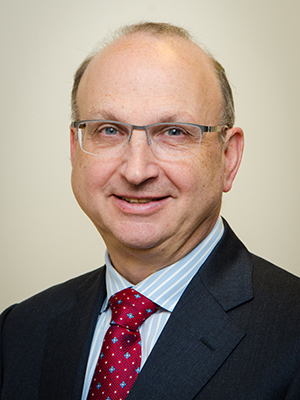Support for Trainees and Early Career Development
Message from Norman Rosenblum, INMD Scientific Director

Since I began in my role as Scientific Director, I have met with a number of INMD partner organizations to discuss issues pertaining to training and career development of health researchers. Developing a healthy and vibrant research pipeline is an issue on which I have been focused for many years, as I have played a leadership role in national training programs such as the Canadian Child Health Clinician Scientist Program (CCHCSP) and Kidney Research Scientist Core Education and National Training Program (KRESCENT). Both CCHCSP and KRESCENT provide a programmatic approach to training, and employ practices that have been demonstrated in studies to be efficacious.
Some key factors for the success of training programs include trainee selection, a core curriculum that specifically addresses the attainment of specific domains of relevant knowledge and skills, a trainee-centered learning approach, strong mentorship and coaching, and program evaluation. Trainees should have a strong commitment to research, be highly motivated and demonstrate attributes that would contribute to a successful career in health research. Program curricula should include study design, ethics, scientific regulatory requirements, grant writing, time management, work/life balance, mentor/mentee relationships, and human translational research. Multiple approaches to mentorship, including interdisciplinary, team-based mentoring, have been demonstrated to have added value compared to traditional one:one approaches. Training for mentors towards the attainment of effective mentorship skills provides significant added-value to mentorship programs and engages mentors. Finally, the success of trainees needs to be evaluated to continually improve program elements and practices over time.
I am a proponent of programmatic approaches to training because I believe they contribute to ensuring that trainees develop a “professional identity” so that they are able to imagine a future in which they are part of the health research ecosystem. I will continue to meet with partner organizations to collaboratively identify and support effective approaches to training and career development.
Norman Rosenblum, MD, FRCPC
Scientific Director, CIHR-INMD
Further reading in this area:
Blanchard M, Burton C, Geraci MW, et al. (2018). Best Practices for Physician-Scientist Training Programs: Recommendations from Alliance for Academic Internal Medicine. Am J Med. 131(5): 578–584. DOI: 10.1016/j.amjmed.2018.01.015
Faupel-Badger, JM, Raue, K, Nelson, DE, et al. (2015). Alumni Perspectives on Career Preparation during a Postdoctoral Training Program: A Qualitative Study. CBE-Life Sci Educ. 14(arl1). DOI: 10.1187/cbe.14-06-0102
Burns, KD., Levin, A, Fowler, E, Butcher, L, Turcotte, M, Makarchuk, MJ, Macaluso, B, Larivière, V and Sherman PM. (2017). The KRESCENT Program (2005-2015): An Evaluation of the State of Kidney Research Training in Canada Canadian Journal of Kidney Health and Disease 4: 1-9 SAGE Open DOI: https://doi.org/10.1177/2054358117693354
- Date modified: